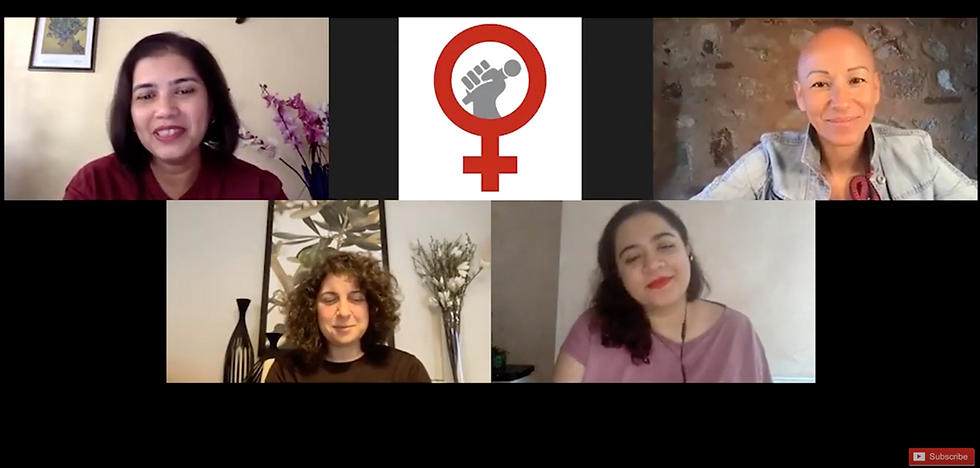Bridging the digital gap for women and girls
- frayintermedia

- Jan 29, 2021
- 2 min read
The digital divide is uneven, mostly affecting women and girls who are shut out from even owning a mobile phone.
ElsaMarie D’Silva, Founder & CEO of Red Dot Foundation (India), said that the gender digital divide has made women and girls fall behind in accessing technology that has proven to be vital in the COVID-19 pandemic.
“Various studies have shown that men use the internet much more than women,” D’Silva said.

D’Silva moderated a discussion on using technology to build community at the “Claiming our stories, Raising our voices” conference on January 21. She was joined by Hera Hussain from Pakistan, the founder of Chayn, Karla Ruiz Cofiño, a digital strategist from Guatemala and Tamara Abdel-Jaber, founder and CEO at Palma Consulting in Jordan.
Women and girls from the Global South are most affected by the digital divide. 70% of women in South Asia and 34% of women in Africa do not have a smartphone or mobile internet access according to the Organisation for Economic Co-operation and Development.
The organisation estimates that globally, roughly 327 million fewer women than women have a smartphone and can access mobile internet. The gender-based digital gap is widened by factors such as stereotypes around technology being ‘for boys’, according to Plan International.
From her experience in mentoring, Abdel-Jaber said women, especially mothers, are “second priority” when it comes to accessing technology tools or internet access.
“A lot of those women were asking for the sessions to be in the evening because that is when their husbands would be home and they would have access to the Internet using [their husband’s] phones,” Abdel-Jabel said.
D’Silva highlighted that the increased shift to online in the COVID-19 has worsened online harassment saying: “The physical violence has moved to a digital space”.
No one is exempt from online abuse, Cofiño said.
“You have bullies, you have trolls, especially when you start building a voice,” Cofiño said.
Hussain highlighted that there are often attempts to silence women from speaking out through activism, especially in countries like India and Pakistan.
“Those who are not allowed to engage in person or may not be safe for them to do so, they're able to participate online. So they're using their civic rights and they're able to not be constrained by things that are outside of their control,” Hussain said.
Abdel-Jaber said the digital world also gives women the autonomy to improve themselves.
“COVID-19 was sort of the biggest motivation for them to force them to digitally transform and put themselves out there.
And I think that's something that has been a great opportunity for women, especially women in business. And they should continue in that track. They cannot go back to their old ways,” Abdel-Jaber said.
The web helps women find new ways to form communities, find friends with similar opinions and helps them to be creative, Hussain said.
“I think we should never forget that there's so much misery and violence and sadness, especially for women. So any opportunity there is for women to thrive, I think we need to celebrate it,” Hussain added.
Watch the full discussion here.





Comments